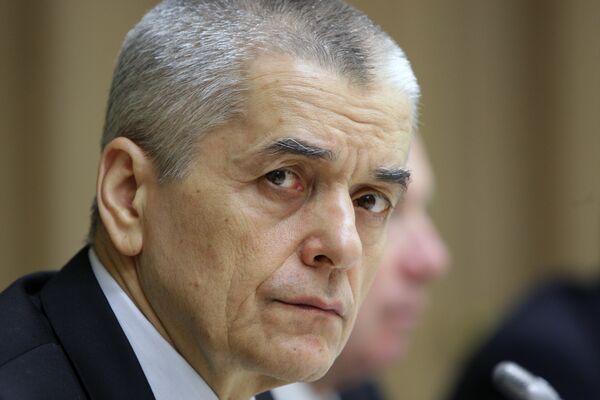Russia's chief sanitary doctor Gennady Onishchenko said Sunday he was ready to discuss U.S. poultry supplies to Russia, suspended from January 1, on February 28.
"They proposed meeting with us March 1-2. We confirmed our earlier voiced wish: we are ready at any moment, the sooner the better. They fly in on February 28, and I am ready to meet them on that day," he told RIA Novosti.
Russia banned imports of U.S. chlorine-treated poultry as of January 1, citing new safety requirements. Washington, which supplied 22% of poultry consumed in Russia last year, says the move will damage American poultry industry and push prices up for Russian consumers.
The new requirements, which apply to both imports and meat processed in Russia, state that the amount of chlorine in the solution used for the processing of poultry meat should not exceed the level set for drinking water, 0.3-0.5 milligrams per liter. They also state the fluid that separates when defrosting the meat should not exceed 4% of the total weight of the bird.
Chlorine in the United States has been used as the primary anti-microbial treatment for a quarter of a century.
Russia's quota for the United States this year is 600,000 metric tons of poultry. Imports from the United States, the world's largest poultry producer and exporter, accounted for some 750,000 tons of poultry consumed in Russia last year.
Russian producers and public have long been speculating over the possible dangers of the U.S. product, citing excessive levels of hormones, antibiotics, chlorine and other chemicals.
A U.S. expert earlier said the United States has its own strict poultry quality requirements and should it agree to Russian demands, it would no longer fall in line with its own sanitary requirements. Another American expert said it is more important for the U.S. to follow its own regulations than Russian ones not to lose its domestic market. He added that high content of chlorine is banned in Europe as a preventive measure while its risk has not been proven.
MOSCOW, February 21 (RIA Novosti)




